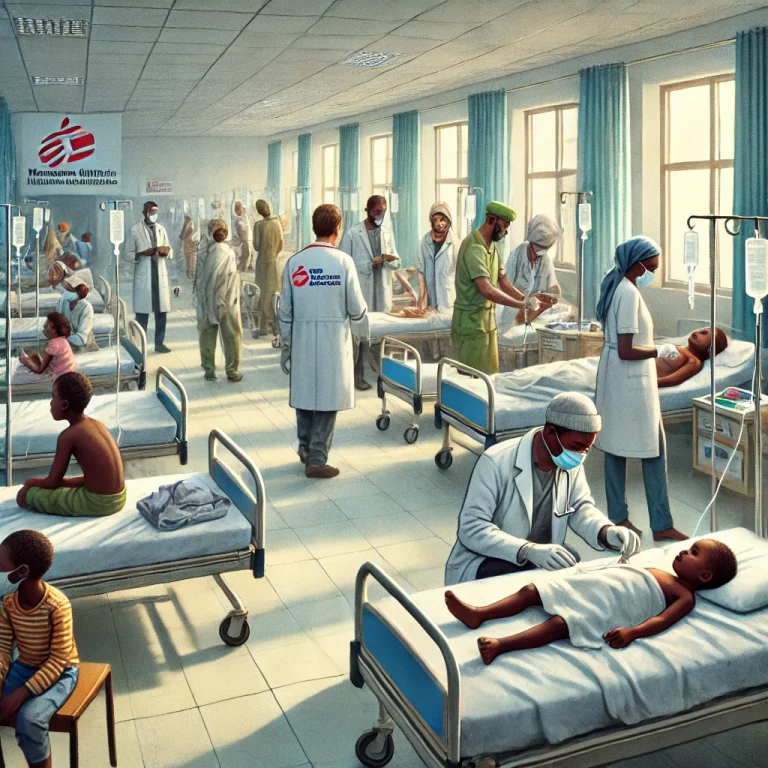The United States Mission in Nigeria has warned that anyone applying for a visa with the main aim of giving birth in the U.S. to secure American citizenship for their child will be denied entry. This has sparked fresh calls in Nigeria for better hospitals and stronger economic development.
The warning was shared on Monday through the U.S. Mission’s official handle on X (formerly Twitter), @USinNigeria. It said U.S. visa officers will refuse applications if they believe the main reason for travel is childbirth.
The post read: “Using your visa to travel for the primary purpose of giving birth in the United States so that your child will have U.S. citizenship is not permitted. Consular officers will deny your visa application if they have reason to believe this is your intent.” The message included hashtags #VisaWiseTravelSmart and #USVisa.
A graphic shared with the post also stated, “We will deny your visa if we believe your primary purpose of travel is to give birth in the United States to get U.S. citizenship for your child. This is not permitted.”
Reacting to the development, Nigeria’s former Ambassador to Mexico, Ogbole Amedu-Ode, said this is part of a wider visa restriction policy. He described it as similar to the strict immigration approach seen under the “Trump 2.0” style of leadership.
He said, “To me, it’s a continuation of the new visa rules the U.S. is enforcing under this approach. Nigerians are known to travel abroad not just for medical tourism, but also birth tourism — to have their children born in the U.S. so they can get citizenship.”
“If the U.S. government wants to prevent people from using this route to gain citizenship, that’s their right. But we also have a duty to improve our systems back home, because diplomacy works both ways.”
Former Nigerian Consul to Cameroon, Ambassador Rasheed Akinkuolie, also advised that now is not a good time for pregnant women to travel to the U.S. just to give birth.
“This isn’t the right time for women in late stages of pregnancy to travel to the U.S. just to have their babies there and get citizenship. President Trump has said even children born in America to immigrants might lose their citizenship,” he explained.
He added that this issue is being challenged in court, but no decision has been made yet. He also suggested that U.S. embassies may have been instructed not to grant visas to visibly pregnant women.
However, he clarified that if a woman’s pregnancy isn’t noticeable, and she’s traveling for a short event like a conference, she may not be denied a visa — unless there are other reasons to refuse it.
He further explained that airlines often do not allow heavily pregnant women on board, due to health and safety risks. If a woman goes into labour mid-flight, the plane may need to make an emergency landing, which could be costly and lead to penalties for the airline.
In response to the issue, the Nigerian Medical Association (NMA) urged the Federal Government to focus more on improving hospitals in Nigeria instead of relying on foreign healthcare options.
The NMA President, Professor Bala Audu, said the problem isn’t with the U.S. government’s policy, but with Nigeria’s healthcare system itself.
“This kind of ban won’t stop people from seeking healthcare abroad. The real solution is to make our hospitals better and ensure healthcare workers have good conditions to work in,” he said.
He pointed out that many Nigerians going abroad to give birth aren’t doing so for medical reasons, but to secure foreign citizenship for their children.
He added, “I don’t want any of my children born in America. We are Nigerians.”
The NMA stressed that the Nigerian government should not treat foreign immigration policies as answers to domestic healthcare problems.
Instead, they called for serious reforms in the health sector, more investment in hospitals, and better support for doctors and nurses.
“The real solution is to fix our hospitals and improve how healthcare workers are treated,” Prof. Audu concluded.


